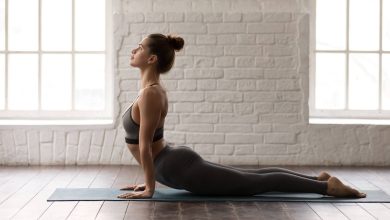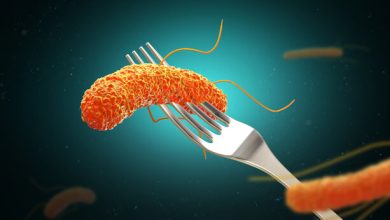Is an Air Purifier effective against Covid-19?

in 2019, in Covid-19 vs. air cleaners
The worldwide health impact of the COVID-19 epidemic has been enormous. In 2020, more than 50 million people will have been exposed to the virus. In addition, more than 1.5 million people died as a result of respiratory illnesses.
According to one study, properly wearing a mask and maintaining a good social distance can dramatically prevent the spread of the coronavirus (COVID-19).
However, due to worries about the aerosol transfer, many people have turned to air purifiers. So, how do different kinds of air purifiers work? Is there any effect on COVID-19 from any of them? Should you get one for your house?
Let’s take a look at how, in addition to following the basic precautions and guidelines, you may utilize an air purifier to help protect yourself against the deadly Coronavirus.
Covid-19, what precisely is it?
Coronaviruses are viruses that can infect the lungs of humans.
The term “corona” was inspired by the virus’s numerous crown-like spikes on its surface.
Coronavirus infections in humans include severe acute respiratory syndrome (SARS), Middle East respiratory disease (MERS), and the common cold.
In 2019, in Wuhan, China, a novel coronavirus strain, COVID-19, was discovered. Since then, the virus has spread to all continents (except Antarctica).
As of October 28, 2021, 4,987,910 people had died as a result of the COVID-19 coronavirus pandemic. This virus has ruined the entire world’s mechanism by isolating people from the outside world.
The entire world order has transformed since the epidemic. Retail enterprises and shopping malls have been supplanted by e-commerce stores. Zoom meetings have taken control in the classroom. As a result of the shift of office jobs, a work-from-home culture has arisen.
Organizations like the World Health Organization (WHO) and the Centers for Disease Control and Prevention (CDC) are gathering data and refining their understanding of how this deadly virus spreads through scientific and medical research.
What exactly is the method by which Covid-19 spreads?
COVID-19 is a potentially lethal infection caused by the severe acute respiratory syndrome coronavirus 2 (SARS-CoV-2).
When the virus comes into touch with mucous membranes in the eyes, nose, and mouth, it can cause disease and even death.
COVID-19, like measles and influenza, is a viral infection that can be spread through aerosols.
It can, however, be transferred via more traditional means, such as:
- When an infected person coughs, sneezes, talks, sings or breathes near you, the virus spreads by respiratory droplets (within six feet). This is expected to be the primary method of propagating COVID-19.
- When the virus spreads in small respiratory droplets that stay in the air for minutes to hours after an infected person has walked more than six feet away or has already left the area. This mode of transmission is more likely to occur in enclosed environments with little ventilation.
- Close physical contact (touching, shaking hands) with an infected individual.
- By coming into contact with virus-infected surfaces and then touching your eyes, mouth, or nose before washing your hands.
Governments, health organizations, researchers, and healthcare practitioners are all collaborating to devise laws and procedures that will prevent the virus from spreading both globally and from person to person.
What does a Covid-19 air purifier filter do?
Pollutants, which are often made of glass or specific synthetic fibers can be trapped with mechanical air purifiers which use mesh filters.
Mechanical air purification filters are classified into two types: High-Efficiency Particulate Air (HEPA) filters and HyperHEPA filters.
Mechanical filtration is the most effective and safest way of removing contaminants from the air.
Air purifiers, when used appropriately, can help minimize airborne pollutants such as viruses in a home or confined area.
Many business buildings also have commercial grade air purifiers installed to maintain a safe and secure atmosphere for the many employees that work there.
An air cleaner must be able to remove airborne particles in order to be effective at removing viruses from the air.
Manufacturers offer Covid Air Purifiers with High-Efficiency Particulate Air (HEPA) filters.
Covid vs. HEPA filter air purifier
The industry standard for air filter efficiency is HEPA (high-efficiency particulate air) filters.
High-efficiency particle absorption filters and high-efficiency particulate arrestance filters are also the other names.
Filters that fulfill the HEPA standard must be highly efficient.
A HEPA air filter must be capable of removing at least 99.95 percent of particles. The diameter must be 0.3 m from the air that passes through it.
Pollen, filth, dust, dampness, bacteria, viruses, and submicron liquid aerosol are all captured by HEPA filters.
A reputable company’s air purifier can assist you in protecting yourself and your loved ones from this lethal infection.
Conclusion
Many guidelines on how to create a clean and healthy environment following covid have been issued.
As simple as it may sound, air purifiers should not be used as the first line of protection against viruses. Social seclusion, disguising, and meticulous cleaning should be the first lines of defense.
A good air purifier with a HEPA filter, on the other hand, can filter airborne ultrafine particles such as COVID-19, which is an important aspect of a virus-prevention method.
Viruses can be collected using filters intended for minute particles, however, this does not give complete protection because airborne transmission is only one-way virus transmission.
Even the most effective air filters are ineffective in avoiding this deadly disease.
So stay safe at home. Adopt the safety precautions and steps recommended by doctors and health experts to guarantee a healthy lifestyle.
COVID-19 Frequently Asked Questions
- IS COVID-19 DANGEROUSER THAN THE FLU?
Yes. COVID-19 has a higher rate of serious illness and death in almost every age group when compared to influenza (flu). - HOW DIFFERENT IS COVID-19 FROM OTHER PUBLIC HEALTH THREATS?
This is extremely dependant on where people live and how old they are, with some parts of the world being hammered more than others and specific age groups, such as the elderly, being particularly hard hit.
- ARE MASKS EFFECTIVE, AND DO THEY ALSO NEED TO COVER MY NOSE?
Wearing a mask is a very easy and efficient means of reducing transmission and saving lives.



